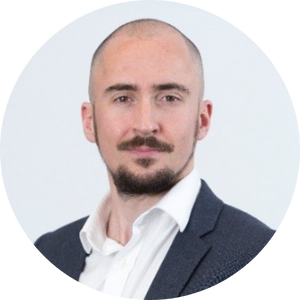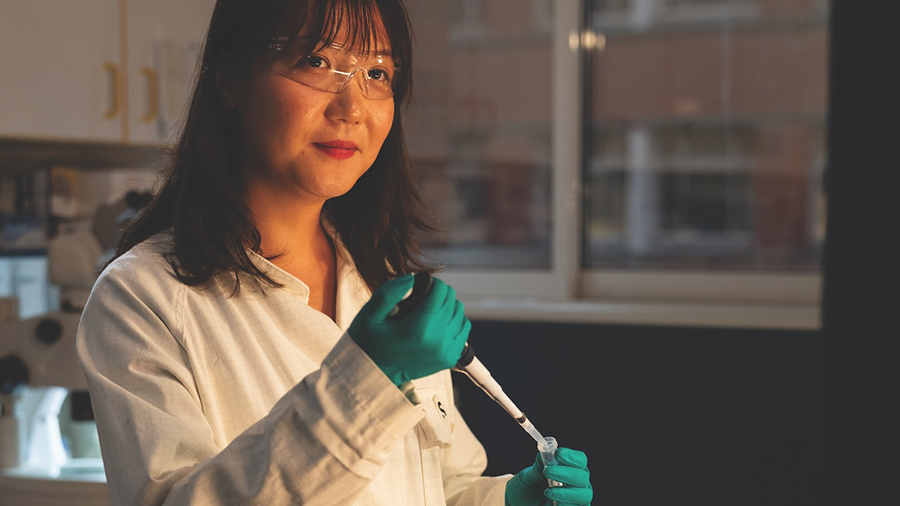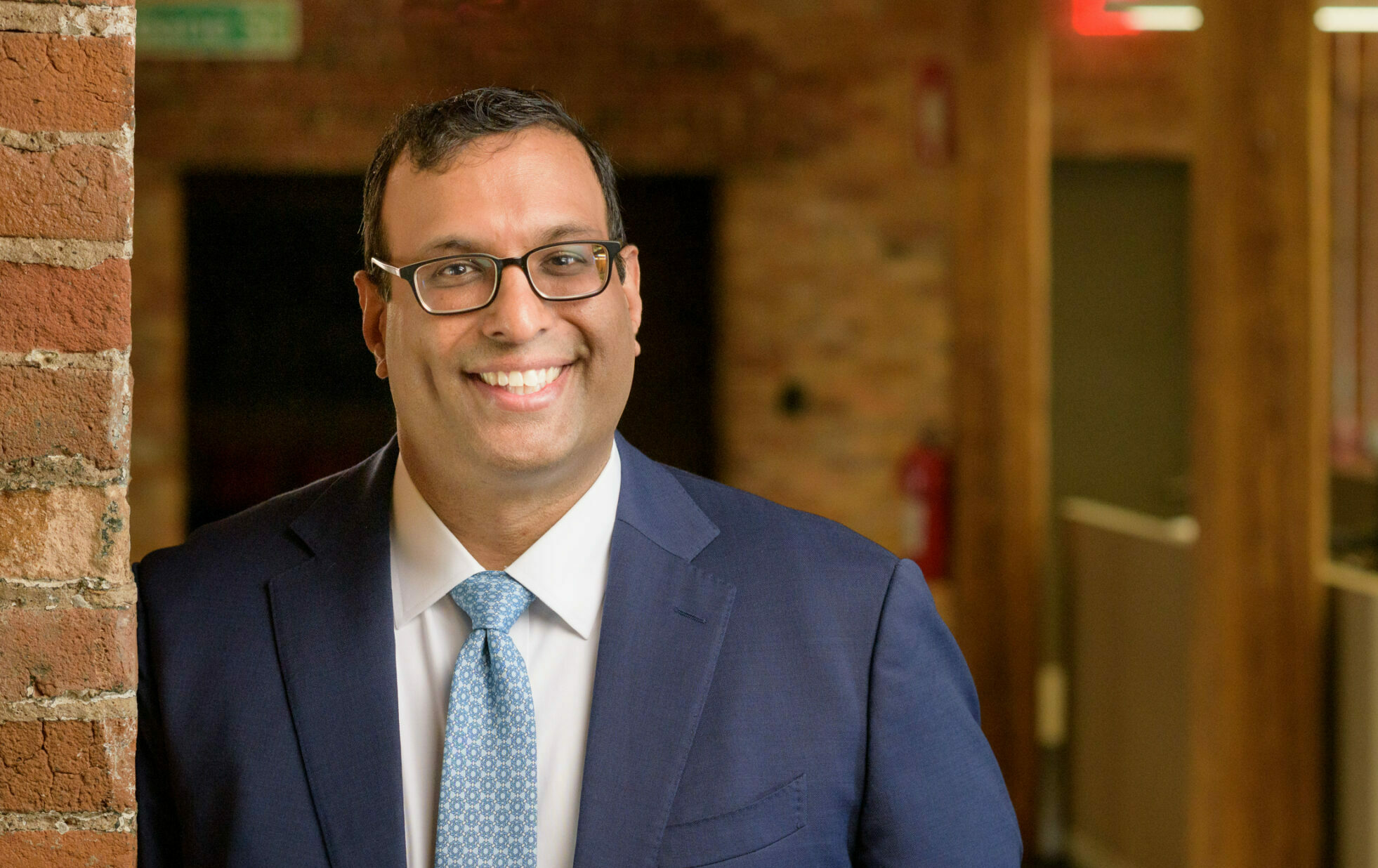New technologies will help us create a better world – if we can unlock the power of partnerships to solve complex problems, says Dell’s Margarete McGrath.
For some people, leadership doesn’t start in the workplace. It begins much earlier. Margarete McGrath, global advisory lead at Dell Technologies, makes the point. She grew up in Dublin, Ireland, in a large family. “I’m the eldest of six children, and I think being the eldest naturally paves the way for you to step forward a bit faster than others,” she recalls. “You’re always the one that’s taking the lead!”
That willingness to step forward was reinforced by her father, who exposed her to the workplace at a young age. “My dad had his own business, and I worked with him during school holidays. I remember working in his office when I was about 12, walking around with a little briefcase,” she laughs. It’s a natural form of imitation.
“As a kid, you tend to emulate your parents – they’re your role models,” agrees McGrath. Those experiences had a lasting impact. “I think that gave me a taste for leadership at a young age. That was the start of it all for me,” she reflects. “It gave me a sense of working for myself, leading others, and developing a strong work ethic and entrepreneurial mindset.”
McGrath has drawn on and developed those instincts over the course of a varied career that has included a number of years in consulting, solving problems with some very different clients in different parts of the world. How has that shaped her outlook? “Consulting gave me immense exposure to different environments,” she says. “Those experiences taught me a great deal about cultural nuance and how different people work and view the world. It was a real privilege.”
The diversity of those projects stands out. “One of my early milestones was being sent out to an oil platform as a young consultant,” she explains. “That was a real eye-opener!” She went on to work on everything from consumer goods to public services, particularly in Australia and New Zealand. That left a lasting impression. “I had no idea how hard it is for some of our public sector leaders – be they nurses, doctors, or police officers. The pressures they face, trying to keep a service going while also meeting the human demands of the role, are immense,” she admits. “I’d no real appreciation for that. I don’t think most of us do.”
Varied assignments continued to open McGrath’s eyes to different ways of seeing the world. One memorable project was with New Zealand’s Conservation Authority. “I really got to understand the connection between people and the land in New Zealand. It’s such a deep, almost spiritual attachment, especially for Maori communities.” A sense of connection to the land infused another remarkable project in New Zealand. While working for PwC, she started a business at a local food market – and ended up leading the market’s regeneration for Wellington City Council, splitting her time to work on the project alongside a host of local farmers and small producers. “I absolutely loved it,” she says. “The produce was phenomenal – and it gave me real sense of working for myself, networking and creating a sort of ecosystem”, she says. “That food market is still there today – I’m very proud of what I did back then.”
Seeing through others’ eyes
The cumulative effect of those experiences has been to give McGrath a profound interest in other people and what truly makes them tick – and the power that can be unlocked when people come together. “I always want to find out what’s behind the individual,” she says. “If I see someone have an emotional outburst, I tend not to judge right away – I’ll think, ‘OK, there’s something else going on.’ The exposure I’ve had has given me that little bit more empathy.”
How does McGrath describe her leadership style today? “I’d like to think that I’m a very open leader. Integrity really matters. You need to walk the talk, and you need to practice what you preach,” she says. In part, that’s a matter of living up to the standards set by leaders she’s worked with. We might start by imitating our parents, but we go on to model our behavior on those we admire professionally. “I’ve had great leaders throughout my career, whether in consulting or now at Dell Technologies, and even among clients I worked with. You try to take the best of their leadership skills, and emulate them and learn from them.”
In that vein, it’s striking how McGrath speaks of Michael Dell – the founder, chairman, and chief executive of Dell Technologies, which he founded back in 1984. Few of his peers from that era remain in business, yet Dell’s ongoing influence and capacity to inspire are clear. “One of the reasons I think I was so attracted to working at Dell is that I remember seeing my dad running his own business,” reflects McGrath. “Michael Dell is still very much involved in Dell Technologies today, continuing to innovate and pivot the organization.”
The impact of Dell’s leadership is tangible. “It makes it a real joy to go to work,” enthuses McGrath. “I feel really privileged working for a founder who’s as innovative and visionary as he is.”
The ecosystem leader
McGrath’s readiness to listen to and understand others’ perspectives is well-suited to her current role leading Dell’s global advisory and strategy partner relationships, working with big consulting firms who wrap their services around Dell’s technology solutions. “Each of those consultancy firms has its own culture, personality and approach,” she says. “The more we collaborate, the more we understand each other, and the better our solutions become. Our partnerships are phenomenal and truly built on the foundation of trust.”
The business case for working in partnership is irrefutable. “We can’t solve complex problems alone. We need to build and refine ecosystems built on trust, where we can continually innovate and drive value together,” adds McGrath. That demands that leaders appreciate the perspectives that partners offer. “The value is in the diversity of thinking – every partner brings a different lens with their unique capability.”
Leaders also need to be realistic about the challenges of working through an ecosystem. “Of course, there’s an overhead, because you’re managing multiple partners and you’re trying to drive an outcome. You’ve got to invest the time to build a relationship.”
Yet businesses have to deliver on their short-term targets, too. Is there a conflict? “You’ve got to keep the lights on,” says McGrath. “We’re building these partnerships to drive long-term value, but with these relationships, you don’t build them in a quarter – so it’s a bit like building and flying a plane at the same time.”
Some relationships in particular require a long-term commitment. “In areas that have major challenges, like the public sector, solutions can take a long time to co-create,” she points out. “So it does take a bit of patience – we need to keep innovating with our partners.”
What then makes for a great ecosystem leader? “They focus on the value each partner brings and how to stitch it all together. A true ecosystem leader can unlock that value faster, balancing the needs of all the players involved,” says McGrath. It’s a balancing act, she points out: extracting value while building trust and deepening partnerships. “The shift from transactional to long-term, shared-value based relationships is happening now.”
The technology opportunity
McGrath has no doubts about the extent of the AI transformation that businesses are embarking on. “This is the time for Gen AI and for AI adoption, both on a small and a large scale. We’re going to see considerable innovation over the next couple of years.”
She’s optimistic about how AI adoption will impact society. “I’m pretty positive about where we’re going to go with technology,” she says. AI could bring diagnostics and treatments for illnesses like dementia and Alzheimer’s within in reach, or transform road safety – and there will be vast commercial opportunities for the organizations agile enough to seize the moment. “It’s going to offer leap-frog opportunities for some industries and some verticals,” she says.
McGrath may be a tech optimist, but she is also clear-eyed about the challenges of implementing it equitably, securely and sustainably. “If we can move faster, let’s do it – as long as we can get the governance and the right safeguards in place,” she says. “One key challenge will be making sure that everybody has access to the technology, and the connectivity that goes with it, too – as well as managing the data security and the sustainability issues that are at play around data centers and resource consumption,” she adds.
The point about access is fundamental. “As leaders, we need to make sure that everybody has access to AI – which means making sure that people are AI-literate, and that we democratize these tools, so everybody can advance at the same time. We don’t want to leave anyone behind.”
That vision of inclusion has to be matched by a commitment to inclusion within organizations. McGrath was a panelist at Duke Corporate Education’s 2025 Lead with Her conference in London, and she knows that while business has come a long way on diversity and inclusion in recent years, there is much further to go. While Dell has a “pretty amazing” track record, she says, the tech industry as a whole faces ongoing systemic issues. “We don’t have enough young females studying STEM [science, technology, engineering and maths] in university, and that’s something we see in our new hires – we just don’t have the representation.”
Recent shifts in the US, in particular, don’t shake the fundamental business case for inclusive workplaces. “We see a lot of business leaders holding firm around making sure that their workforce represents the whole of society,” says McGrath. “I bring it back to the basics, which is, we want our technology to work for everybody, right? So we need to make sure that our workforce represents everybody.”
True diversity is a prerequisite for creating better solutions and avoiding groupthink. “We do not want to go back to a pale and stale environment – those times are over. This is about celebrating differences; that’s where we get the most innovation.” She points to Dell’s technical solutions teams. “They’re super-diverse teams from all over the world – and we welcome that. We celebrate it all the time, and we’ll continue to hold that very dear to our hearts,” she says. “It’s certainly very dear to my heart.”
Business may need to take the lead when governments hesitate on sustainability, too. McGrath has been struck by the commitment to sustainability displayed by younger employees and emerging leaders. “I’m really encouraged,” she says. “They are strongly values-driven – they won’t consume certain products or drive certain cars because of their footprint or ethics. It’s encouraging to see that perspective.”
McGrath leads a mentoring program at Dell EMEA called Elevating Women, which is focused on accelerating young female talent. She is passionate about the importance of mentoring in general – a tribute to those leaders who influenced her career. “You want to see younger talent come through – to make sure that they’re successful, that they’re learning, that they’re growing. I think that’s the essence of a really great leader: when you’ve enjoyed someone’s confidence and backing, and you want to pay it forward to somebody else.”
It’s a reminder of leaders’ ability to shape our world for the better, via personal interactions as well as technology solutions built for scale. We should embrace change, not fear it. “We’re in this period of immense flux right now, but I welcome it. I’m positive about it. It’s going to be transformative for how we live – as long as we have leaders who hold firm to their core values and sense of purpose.”




